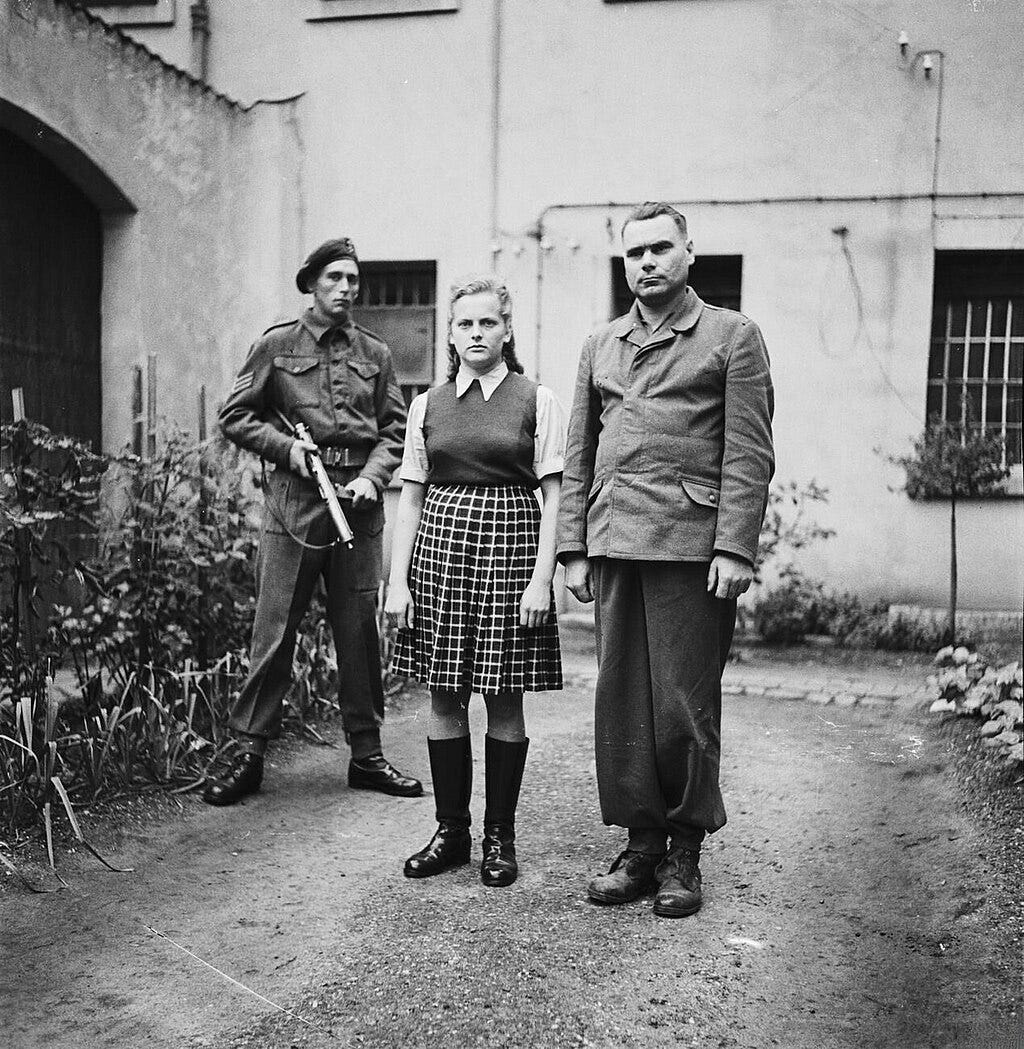You might be surprised to learn that the UK only officially abolished the use of capital punishment in 1998, although by then, it was only on the statute book for the crime of treason. The last person to be hanged in Britain, in 1964, was Gwynne Evans, a Welshman, and in 1969, the practice was abolished.
In the years before that, although he had retired by the 60s, most of the people who were executed in Britain died at the hands of a chap called Albert Pierrepoint. He is estimated to have been the executioner of between 435 and 600 people in a 25-year career. Presumably, one lost count after several hundred.
Mostly, he carried out his job as efficiently and diligently as he could, never openly passed comments on the people he dispatched, taking the job very seriously, and retired to run a pub where he changed his mind about capital punishment and decided it didn’t work. But if someone were going to do it, it would be him, and he would do it right. It was a family tradition. His father and uncle had been hangmen before him. Albert died, aged 87, in 1992.
In his time, he was responsible for the heartbreaking executions of people who were either clearly innocent or who, now, would be able to point to circumstances that mitigated their crimes.
Ruth Ellis, also Welsh, was the last woman to be hanged in Britain in 1955 for the murder of her violent, drunk and abusive boyfriend and is still at the centre of campaigns to be pardoned.
Pierrepoint executed Timothy Evans in 1950, who was, you guessed it, Welsh, for the infamous Rillington Place murders of his own wife and infant child. Evans went to the gallows protesting his innocence and accusing their landlord, John Christie, of being the murderer. In 1953, Pierrepoint then executed Christie for the murder of 6 other people. Timothy Evans was finally exonerated, but not pardoned, of the murder of his own wife and child in 2004.
And all these things are awful and serve to demonstrate what a ridiculous idea capital punishment was. It’s impossible to assign any blame to Pierrepoint as he was, after all, just a man doing a job and doing it with a sense of dignity and professionalism. But he executed a lot of very innocent people, and it’s hard to understand fully how he must have been able to process that.
Having said that, Pierrepoint was also responsible for the execution of some of the most horrendous people in human history.
The Nazi concentration camp guard, Irma Grese, spent her last evening, 12th December 1945, in Hamelin Prison, singing Nazi songs. She had been on trial for murder, torture and being part of the selection process for the gas chambers at Auschwitz, found guilty and sentenced to death.
On the morning of 13th December, Pierrepoint and Regimental Sergeant-Major Richard Anthony O'Neill came for Irma Grese.
”We climbed the stairs to the cells where the condemned were waiting. A German officer at the door leading to the corridor flung open the door and we filed past the row of faces and into the execution chamber. The officers stood at attention. Brigadier Paton-Walsh stood with his wristwatch raised. He gave me the signal, and a sigh of released breath was audible in the chamber, I walked into the corridor. 'Irma Grese', I called. The German guards quickly closed all grilles on twelve of the inspection holes and opened one door. Irma Grese stepped out. The cell was far too small for me to go inside, and I had to pinion her in the corridor. 'Follow me,' I said in English, and O'Neil [sic] repeated the order in German. At 9.34 a.m. she walked into the execution chamber, gazed for a moment at the officials standing round it, then walked on to the centre of the trap, where I had made a chalk mark. She stood on this mark very firmly, and, as I placed the white cap over her head, she said in her languid voice, Schnell. The drop crashed down, and the doctor followed me into the pit and pronounced her dead. After twenty minutes the body was taken down and placed in a coffin ready for burial.”
Later on that day, Pierrepoint also executed the Commandant of Auschwitz-Birkenau, Josef Kramer.
Kramer, The Beast of Belsen, was 39 years old. Grese, The Hyena of Auschwitz, was 22.

Thanks for reading! If you’re stuck for a Christmas gift for a loved one, or for someone you hate, or if you have a table with a wonky leg that would benefit from the support of 341 pages of Roman History, my new book “The Compendium of Roman History” is available on Amazon right now! Please check it out by clicking the link below!




